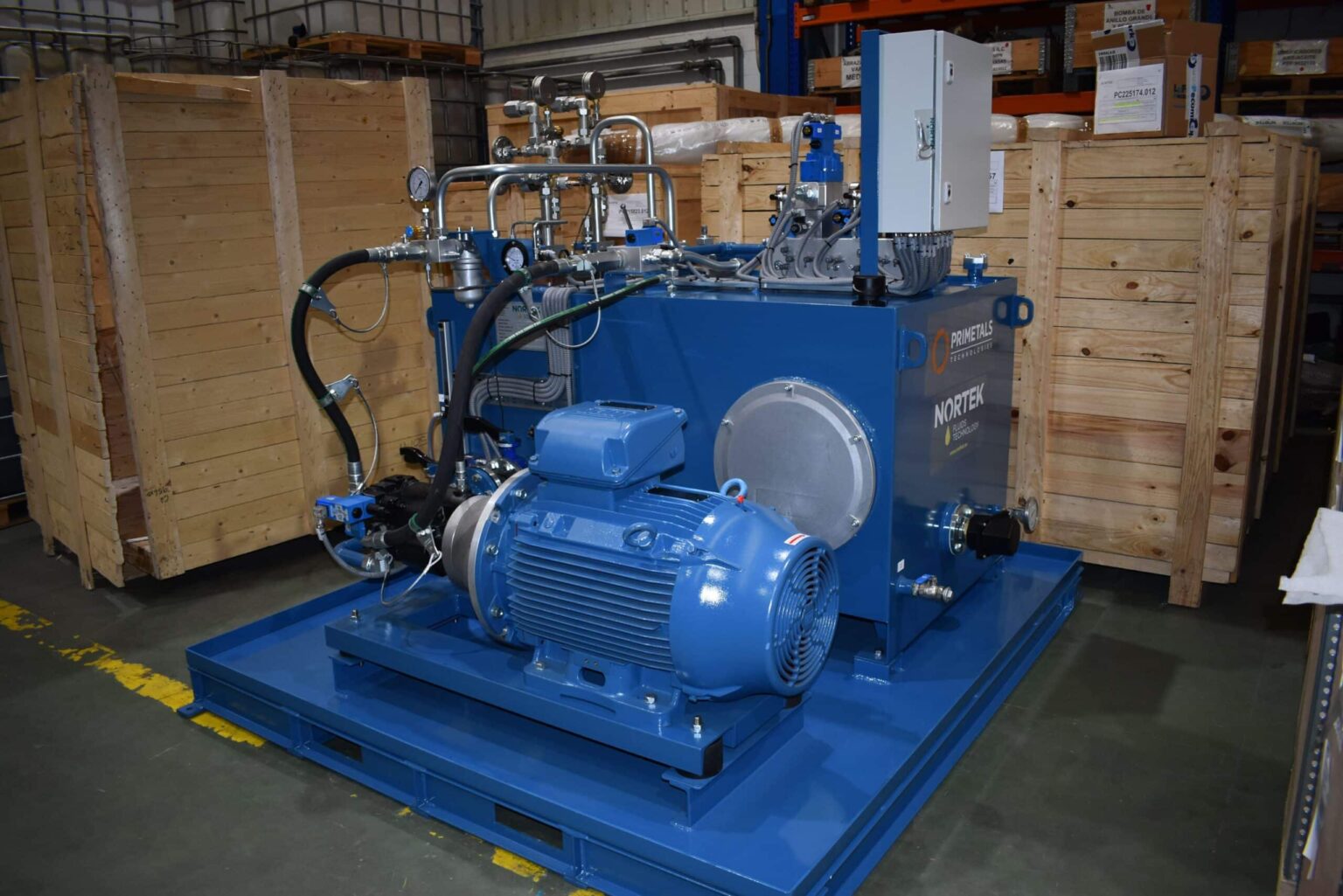
How to choose industrial hydraulic oils?
Choosing the right hydraulic oil is crucial for the proper functioning of any industrial hydraulic system. This type of industrial lubricant not only ensures component lubrication, but also protects against wear and oxidation. In this article, we will explore the characteristics of hydraulic oils, their types, and the requirements for selecting the most suitable oil. In addition, we will examine the specific applications of each type of hydraulic fluid in different systems.
What are hydraulic oils?
Hydraulic oils are specialized fluids used in hydraulic systems to transmit power. These fluids must have a suitable viscosity to ensure that they operate efficiently over a wide range of temperatures. In addition, hydraulic oils contain performance-enhancing additives such as anti-oxidants and anti-wear. Hydraulic system manufacturers often specify the type of hydraulic oil to be used to ensure long system life.
The right hydraulic oil not only facilitates component movement, but also protects against rust and corrosion. The wrong choice of lubricant can lead to increased wear on gears and other critical system components. For this reason, it is important to understand the specifications and requirements of the hydraulic system before selecting a hydraulic fluid.
Characteristics of hydraulic lubricants
Hydraulic lubricants must have certain characteristics to be effective.
- Resistance to thermal degradation to ensure long oil and overall system life.
- Viscosity: is one of the most important characteristics and determines the ease with which the fluid can flow through the system. A high viscosity index is desirable as it ensures consistent performance at different temperatures.
- Wear and corrosion prevention: these lubricants must have anti-wear and anti-corrosion properties to protect system components.
- Prevention of oxidation and bubble formation: Additives play a crucial role in improving the performance of hydraulic oils. These can include antioxidants to prevent oxidation and anti-foaming additives to prevent the formation of air bubbles that could affect system performance.

Types of hydraulic oils
Petroleum fluids
Petroleum fluids are one of the most common types of hydraulic oils. They are derived from crude oil and are known for their excellent lubricating ability and anti-wear properties. However, they can be susceptible to oxidation and thermal degradation, which can reduce their service life. For this reason, additives are often added to improve their performance.
One of the advantages of petroleum fluids is their wide availability and relatively low cost. However, their ability to operate over a limited temperature range may be a disadvantage in some applications. It is essential to consider the type of hydraulic system and operating conditions when choosing this type of fluid.
Synthetic oils
Synthetic oils are a high quality option for hydraulic systems that require superior performance. These fluids are manufactured from specific chemical compounds, allowing precise control over their properties. Synthetic oils have a high viscosity index and are resistant to oxidation and thermal degradation, making them ideal for high-temperature applications.
In addition, synthetic oils often have superior anti-corrosion and anti-wear properties compared to petroleum oils. However, their cost can be significantly higher, which may be an important consideration for some users. Despite this, investing in a synthetic oil can result in long-term savings due to its extended service life and ability to improve system performance.
Water-based oils
Water-based oils are a less common but effective option in certain applications. These fluids have the advantage of being less flammable compared to petroleum and synthetic oils, making them ideal for environments where fire safety is a concern. They are also more environmentally friendly.
However, water-based oils can have limitations in terms of lubrication and wear protection. They often require special additives to improve their performance in these areas. It is crucial to consider the hydraulic system specifications and operating conditions before choosing this type of oil.
Requirements for the selection of hydraulic oils
Selecting the right hydraulic oil requires a clear understanding of the specific needs of the hydraulic system. It is essential to consider factors such as viscosity, viscosity index, and anti-wear and anti-corrosion properties. In addition, compatibility with system materials and operating conditions are critical factors.
Another important factor is the recommendation of the hydraulic system manufacturer. Manufacturers often provide detailed specifications on the type of oil that should be used to ensure proper operation and system life. Ignoring these recommendations can result in suboptimal performance and increased risk of mechanical failure.
Applications of oils according to type
Different types of hydraulic oils have specific applications based on their properties. Some examples:
- Water-based oils, although less common, are useful in environments where flammability may be a problem.
- Petroleum fluids are suitable for general applications where high temperatures are not required.
- Synthetic oils, with their high resistance to oxidation and degradation, are ideal for high temperature and pressure systems.
Each type of oil has its own set of advantages and disadvantages, and it is crucial to select the right one based on the specific needs of the hydraulic system and operating conditions.